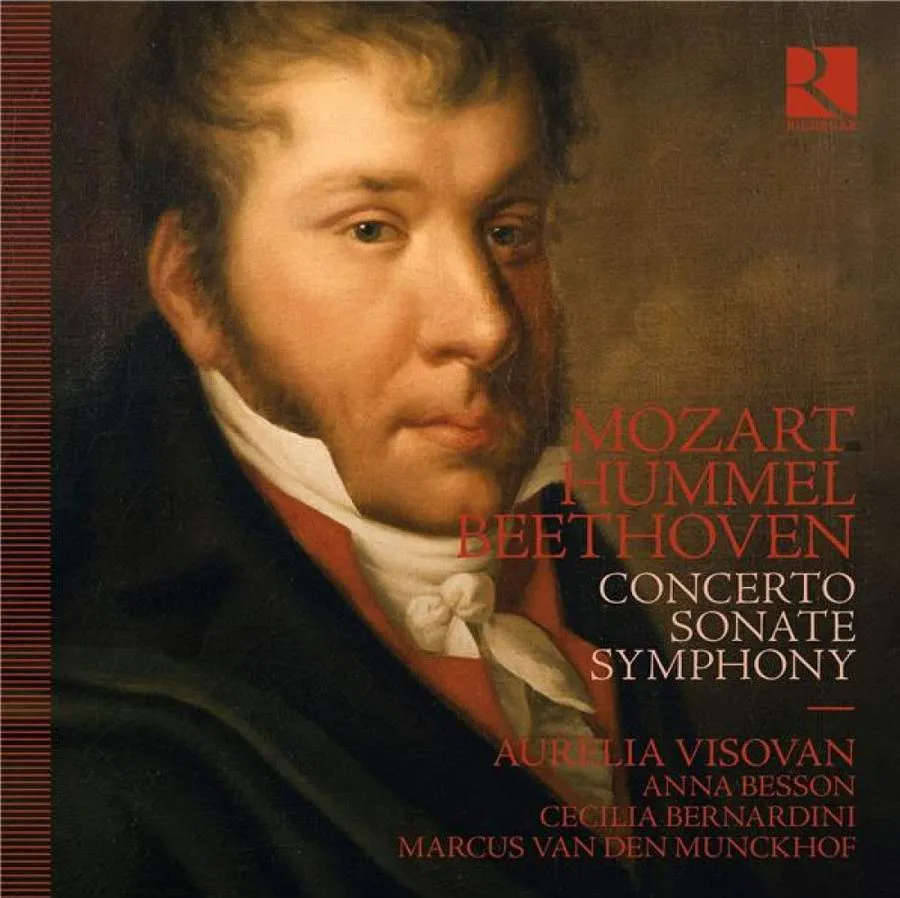
Beethoven • Hummel • Mozart Mozart: Piano Concerto (arr. chamber); Hummel: Piano Sonata (arr. chamber); Beethoven: Symphony (arr. chamber) Anna Besson (flute); Cecilia Bernadini (violin); Aurelia Visovan (piano); Marcus Van den Munckhof (cello) Ricercar RIC417 78:51 mins
Hummel’s prodigious output has received a few boosts on disc in recent years, although he remains a relatively marginal figure. Yet in his day he was one of the most respected musicians on the professional circuit. When Joseph Haydn became too frail to continue, it was Hummel who stepped up to the plate and took over the running of everything musical at Esterházy in 1804. Hummel may have lacked the blazing creative individuality of the greatest composers, yet his molto brillante piano style proved a vital influence on the rising Romantic generation, most especially Mendelssohn.
Which makes this fine period-instrument disc especially valuable for reminding us how central the piano was to Hummel’s work, both as a composer and arranger. Aurelia Vişovan’s consummate performance of the F minor Sonata on a sublime 1835 Conrad Graf piano underlines how close Hummel was to Beethoven in using Mozart as a stylistic trajectory – comparisons with Beethoven’s first official sonata in the same key (written several years before) are fascinating, for while on the one hand the latter emerges as the more radical revolutionary, Hummel’s gentler moments are occasionally premonitory of early Chopin and Schumann.
However, I suspect the principal fascination here will be the two arrangements. Given the chamber-scale inflections of its agonisingly introspective soundworld, it will come as little surprise to learn how effective Mozart’s K491 Concerto sounds on just four instruments, especially when shaped with such sensitivity to mood and atmosphere. Yet it is Beethoven’s Op. 21 that proves especially revealing, when shorn of any attempt to bolster its dancing gestures with an orchestral heft more appropriate for the Seventh Symphony.
Julian Haylock